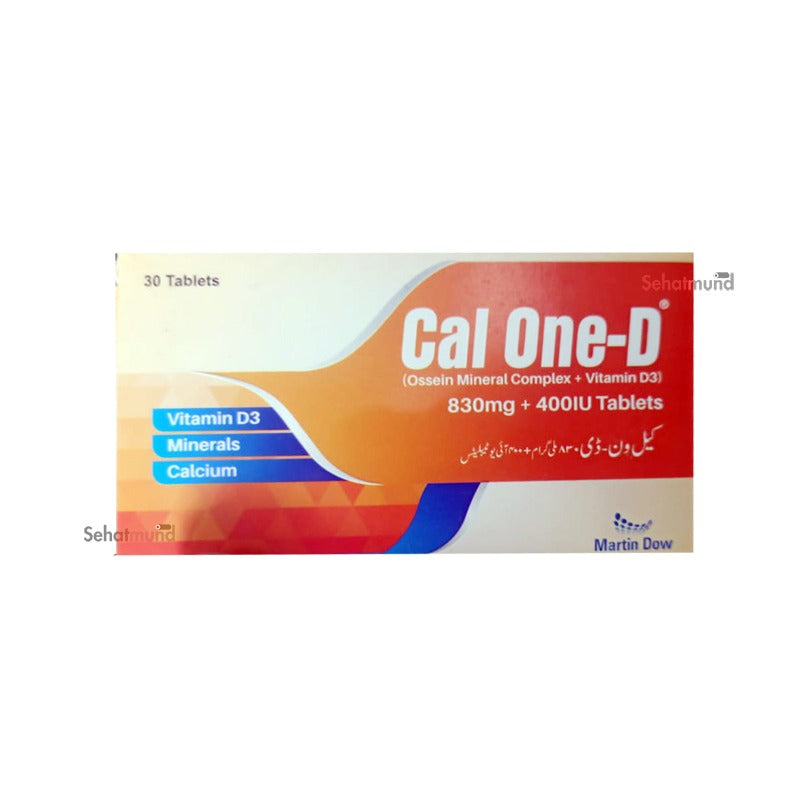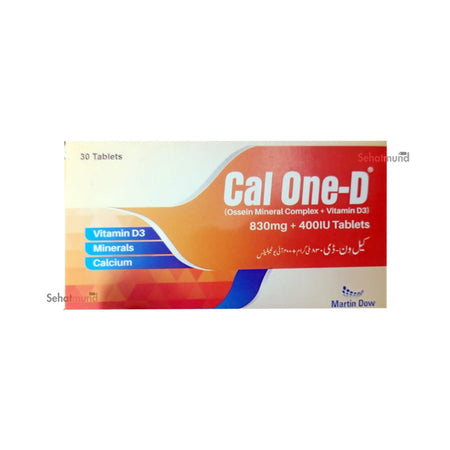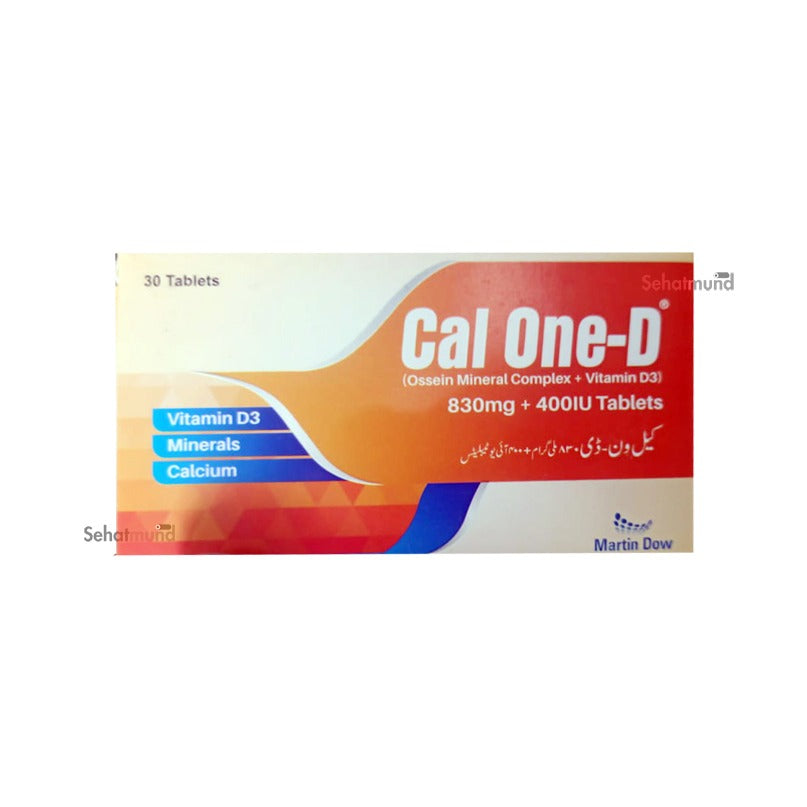Cal One D Tablets 830mg/400IU
Couldn't load pickup availability
You can promote by sharing on social networks on the links.
Product Description
Product Name: Cal One D Tablets 830mg/400IU
Product Form: Tablets
Pack Size: 30's
Manufactured By: Martin Dow Pharmaceuticals
Used For:
Cal One D Tablets 830mg/400IU are likely a dietary supplement formulated to provide calcium and vitamin D. This combination is commonly used to support bone health and may be recommended for various purposes, including:
-
Bone Strength: Calcium is a mineral essential for maintaining strong and healthy bones, while vitamin D plays a crucial role in calcium absorption. Together, they help support bone density and reduce the risk of osteoporosis and fractures.
-
Prevention of Calcium Deficiency: Cal One D Tablets may be used to prevent or treat calcium deficiency, which can occur due to inadequate dietary intake, malabsorption disorders, or certain medical conditions.
-
Vitamin D Supplementation: In addition to supporting bone health, vitamin D plays a role in immune function, mood regulation, and overall health. Supplementation may be recommended for individuals with vitamin D deficiency or those at risk of deficiency due to insufficient sun exposure.
-
Osteoporosis Management: Cal One D Tablets may be part of a comprehensive approach to managing osteoporosis, a condition characterized by weakened bones and increased fracture risk..
Side Effects:
When taken as directed, Cal One D Tablets 830mg/400IU are generally safe for most individuals. However, some potential side effects or considerations may include:
-
Gastrointestinal Upset: Some people may experience mild gastrointestinal symptoms such as bloating, constipation, or gas when taking calcium supplements. This can often be mitigated by taking the supplement with food or choosing a calcium citrate formulation, which may be better tolerated.
-
Hypercalcemia: Excessive intake of calcium can lead to high levels of calcium in the blood (hypercalcemia), which may cause symptoms such as nausea, vomiting, weakness, confusion, and kidney problems. It's essential not to exceed the recommended dosage of calcium without medical supervision.
-
Allergic Reactions: Rarely, individuals may experience allergic reactions to specific ingredients in the supplement. If you have known allergies or sensitivities, carefully review the product's ingredient list before use.
-
Interaction with Medications: Calcium supplements can interact with certain medications, including antibiotics, thyroid medications, and medications for osteoporosis. It's important to consult a healthcare professional before starting calcium supplementation, especially if you're taking other medications.
Precautions:
-
Consultation with Healthcare Provider: Before starting Cal One D Tablets or any new dietary supplement, it's advisable to consult with a healthcare provider, especially if you have pre-existing medical conditions or are pregnant or breastfeeding.
-
Dosage and Usage: Follow the recommended dosage instructions provided by the manufacturer or healthcare provider. Do not exceed the recommended dose unless advised by a healthcare professional.
-
Monitoring: Regular monitoring of calcium levels and vitamin D levels may be necessary, especially if taking high-dose supplements.
-
Pregnancy and Breastfeeding: Pregnant or breastfeeding women should consult their healthcare provider before taking calcium and vitamin D supplements to ensure they are safe for them and their baby.
-
Children: Calcium and vitamin D supplements should be used in children under the guidance of a healthcare professional.



